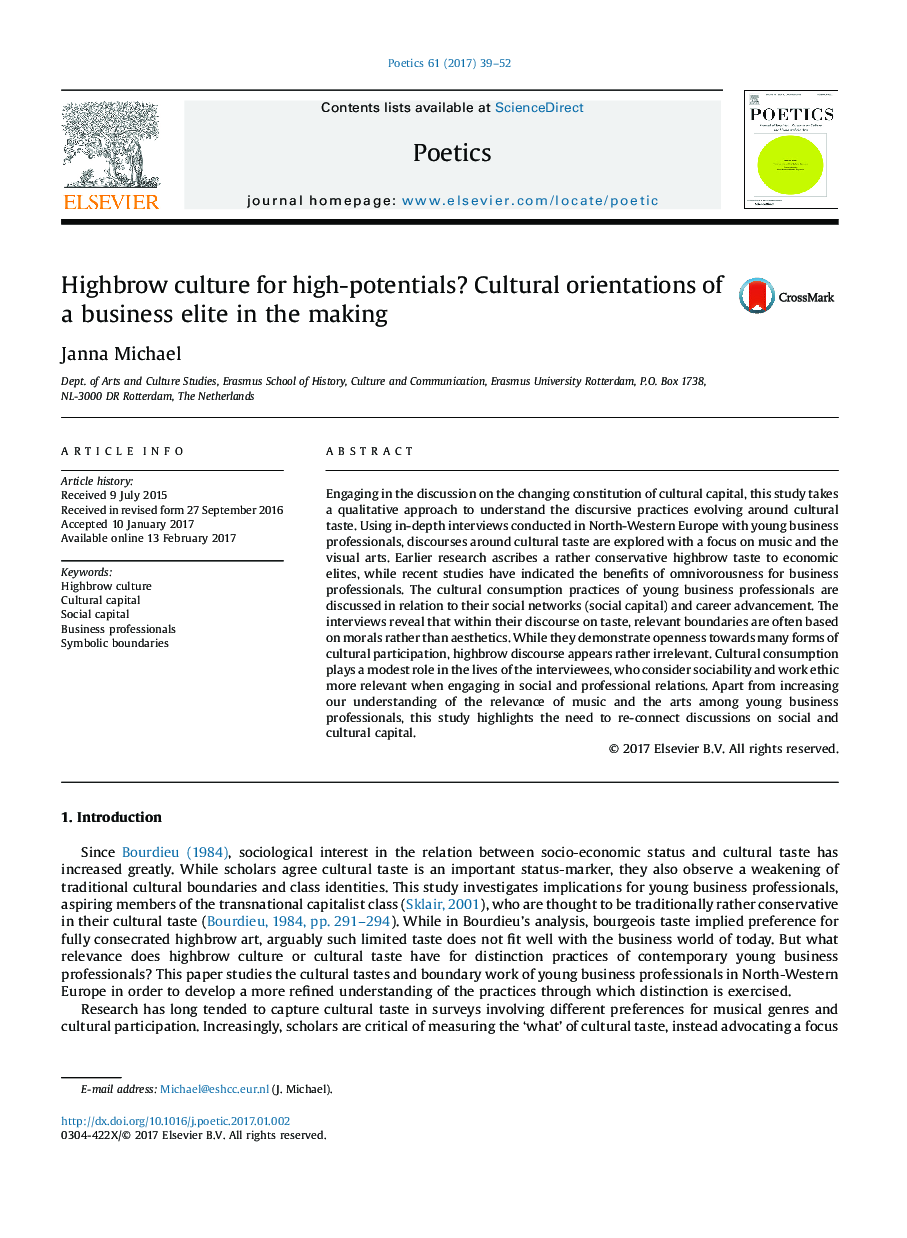| Article ID | Journal | Published Year | Pages | File Type |
|---|---|---|---|---|
| 5126714 | Poetics | 2017 | 14 Pages |
â¢In-depth interviews with young business professionals about cultural taste.â¢Boundaries are based on sociality and work ethic rather than cultural taste.â¢There is 'no need for snobbism' but avoidance of the 'weird' and 'aggressive'.â¢A general openness towards cultural experience is central for self-presentation.â¢Social networks and self-presentation are perceived as key to career advancement.
Engaging in the discussion on the changing constitution of cultural capital, this study takes a qualitative approach to understand the discursive practices evolving around cultural taste. Using in-depth interviews conducted in North-Western Europe with young business professionals, discourses around cultural taste are explored with a focus on music and the visual arts. Earlier research ascribes a rather conservative highbrow taste to economic elites, while recent studies have indicated the benefits of omnivorousness for business professionals. The cultural consumption practices of young business professionals are discussed in relation to their social networks (social capital) and career advancement. The interviews reveal that within their discourse on taste, relevant boundaries are often based on morals rather than aesthetics. While they demonstrate openness towards many forms of cultural participation, highbrow discourse appears rather irrelevant. Cultural consumption plays a modest role in the lives of the interviewees, who consider sociability and work ethic more relevant when engaging in social and professional relations. Apart from increasing our understanding of the relevance of music and the arts among young business professionals, this study highlights the need to re-connect discussions on social and cultural capital.
